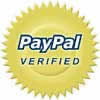The “Ten Categories Cross” (of an expert)

There are ten categories of cross examination questions that you can almost always use in cross-examining an expert witness.
Use this complimentary form to quickly think and organize your thoughts about questions in each of the ten categories.
Using this form:
The following one page form is designed to be placed in your trial notebook (paper or electronic), ready for those times when an adverse expert is testifying for the other side, and you need to build, quickly, a cross-examination.
Do not be deceived by the apparent simplicity of the “paint-by-the-numbers” look of this form. The form allows you to use the same technique used by many experienced trial lawyers.
There are ten goals you may want to accomplish during your cross-examination of an expert. Usually some of them (rarely all of them) can be accomplished by you if you spend some time thinking about each goal separately.
As you think about each goal, jot down the points about which you can question the expert to receive answers that will move the judge and jury to that particular goal. You may find that your cross-examination will build itself.
The Ten Categories Cross-Exam of an Adverse Expert
Jot down, below each of the ten goals, points about which you can ask questions. Do not use a goal if you have only weak items to get before the jury/judge.
- Show the witness is less than impartial.
- Show the witness has limits on his qualifications.
- Do a peripheral cross-examination about the nature of his/her science and its defects.
- Attack his/her opportunity for observation.
- Show the witness does not have some facts.
- Test the memory of the witness; determine his/her memory is faulty.
- Make it seem that the expert is conceding some points; confirm points of our expert.
- Modify the expert’s own conclusion.
- Discredit the expert’s conclusion.
- Develop a portion of our own case. (It can be outside the direct testimony area of the expert.)
Note regarding points 8 & 9 above: Here you may want to vary the hypothetical question asked the expert on direct and modify the question by inserting facts that you feel should have been included and excluding facts in dispute. Further, among other possibilities, sometimes you may want to go further with the items in points 1-7, stating your logical conclusion from them as a question to the expert. But sometimes it is best to leave these goals until final argument. Let the jury/judge make their own conclusions after you use other points in your final argument.
Notes regarding point 10 above: The law of the permitted scope of cross-examination varies by jurisdiction. However, in most states, the law permits, and in most trial courts, the judge, whatever the appellate rule, will permit you a wide cross examination concerning any issue relevant to the case. In short, at trial, most judges will not limit you severely to questions on issues within the scope of direct examination. E.g., Weeks v. State, 187 Ga. App. 307 (1988); Perry v. Brakefield, 534 So.2d 602 (Ala. 1988). State v. Cash, 193 Ohio App. 3d 224, 2011-Ohio-1404.
Cf. Federal Law: Cross examination “should” be limited to the scope of the direct examination…. The court may allow inquiry into additional matters as if on direct examination. F.R.E. 611(b).
In either state or federal court, if objection is made to your exceeding the scope of your adversary’s direct examination, you can reply that your question bears upon the credibility of the witness. To wit, reply that your inquiry is to show the witness knows, or does not know, evidence (or has other opinions), which will make the expert’s direct examination conclusion less credible than it would be absent the answer of the adverse witness to your questions about the additional points involved. If what you are seeking bears on creditability, the evidence is admissible for impeachment, provided its probative value is not substantially outweighed by the danger of unfair prejudice under Rule 403.
Secondly, in either state of federal court, you can call an adverse witness to testify during your own case and cross-examine him/her as an adverse witness on any matters of your own choosing. Why postpone it to your own case? Do all your adverse examination of the expert at the same time – during your initial cross-examination. Most trial courts recognize the common sense of this: it is time saving and easier for all concerned to understand the points involved.
So we suggest saying something like: “Judge, my question is relevant because the purpose of my questions has to do with creditability of Mr. Expert’s conclusions, and questions regarding credibility are proper in cross-examination. We intend to show that Mr. Expert knows, or does not know evidence, or has other opinions, which will make his direct testimony conclusions less credible. And also, Judge, from a practical point of view, it will save time for all concerned, and make it easier for the jury to understand how it all fits together, if instead of waiting until tomorrow for us to call Mr. Expert as an adverse witness, we get all his answers now.”
On the subject of depositions, not trial, if you are looking for a question outline for deposing an adverse expert witness, see our 15-page deposition questions list. #EX0804 – Deposition Cross-Exam of Adverse Expert.

